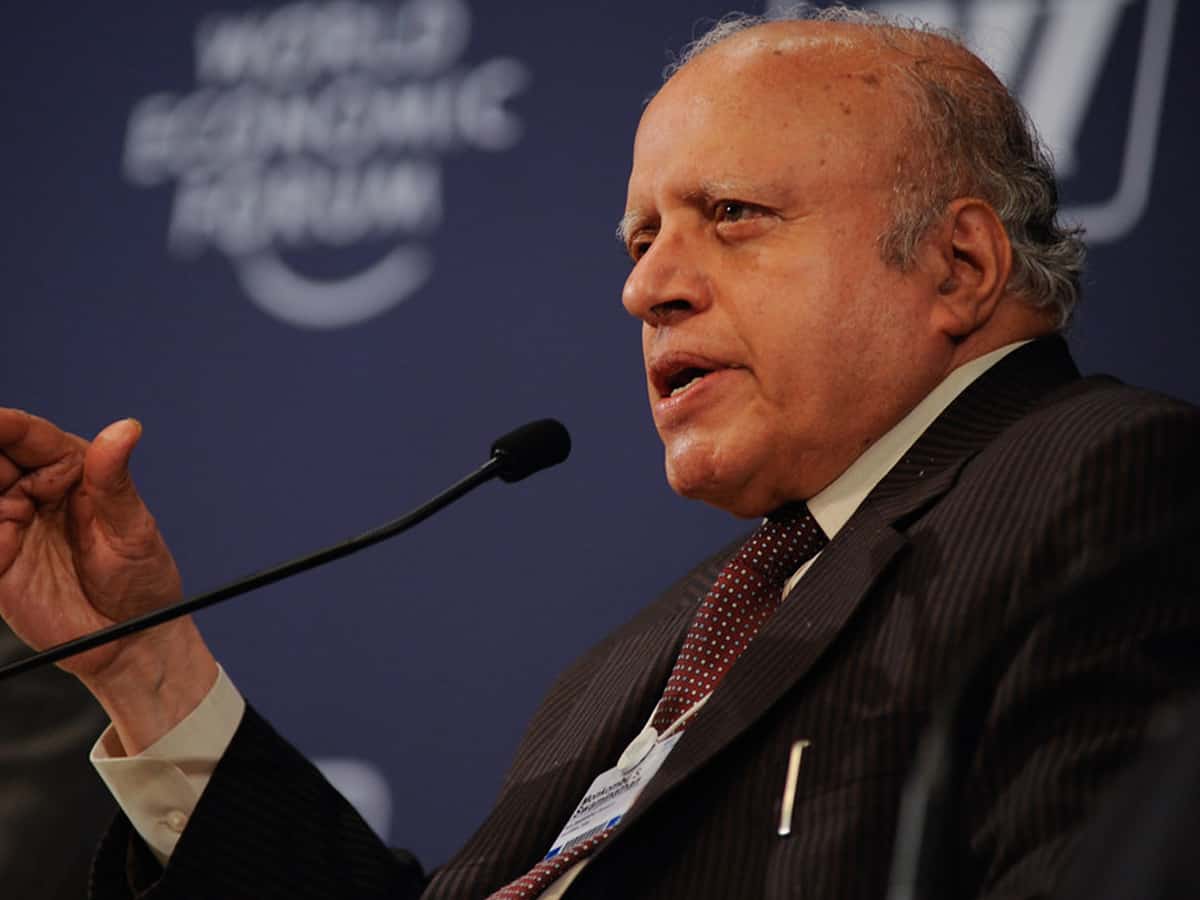
As a young Reporter way back in 1983, it was my good fortune that I met Dr M S Swaminathan the top agriculture scientist. It was at the Directorate of Rice Research in Rajendranagar, Hyderabad. The event was an evaluation of the rice varieties under trial by directors and scientists from across the country, under the Ministry of Agriculture.
After the inaugural session and during the lunch break, the Agriculture Correspondent of The Hindu, Mr G Venkatramani and I walked up to Dr Swaminathan and greeted him. He knew the Hindu correspondent well. So, we were both invited to join him for lunch and in the bargain also got an interview.
What struck me most was Dr Swaminathan’s easy accessibility, his communication skills and humbleness. During the lunch, he sent word to the cook of the guest house and to his utter surprise called him by name and appreciated. The cook was floored, so were many of us around. The next day, my story as a trainee PTI Reporter of just 10 days was widely published.
Thereafter, I have had the opportunity to meet, listen and interview the extraordinary agriculture scientist on innumerable occasions over the next few decades. Hyderabad was one of the cities Dr Swaminathan frequented. The city boasts of one of the largest clusters of Agricultural Institutes of national level, State Agriculture University and also the seed capital of the country.
Incidentally, Dr Swaminathan played an important role in the setting up of the ICRISAT (International Crops Research Institute for Semi-Arid Tropics), a global Institute under the CGIAR System in 1972 in Patancheru. For journalists, especially covering agriculture and science and technology, he always had news and his clarity of expression made him popular too.
Today morning, the 98 year old, Swaminathan, one of the key architects of India’s ‘Green Revolution’, passed away in Chennai at his home due to age related issues. He is survived by three daughters—Madhura, Nitya and Soumya. His wife, Mina Swaminathan had passed away in 2022. Incidentally, Dr Soumya Swaminathan was the Chief scientist of the WHO, during the crucial phase of the COVID-19 Pandemic and played an important role in combating it. She was also the Director-General of the Indian Council of Medical Research.
Dr Mankombu Sambasivan Swaminathan, born in Kumbakonam district of Tamil Nadu has played a significant role in the overall growth of Indian agriculture in Independent India. ‘Dr MS’ as he was popularly called was always forthcoming, explaining agriculture developments and passionate about the progress of farmers and Indian agriculture. He leaves behind a legacy that is imprinted on all facets of agriculture development.
Dr Swaminathan was a field person. He took agriculture scientists and even policy people to the field and met farmers and agriculture workers in the fields to understand the developments and problems. He is credited with defining and implementing the Minimum Support Price (MSP), Small Farmers Consortium, many of the far reaching policies of the Union Governments over the decades.
You name a top committee in agriculture reform and government policy since the 1970s and you will not miss his name mostly as the Chairman or as an important member. That has been the widespread impact of Dr Swaminathan till around 2015.
Incidentally, recognising his contributions, the President of India nominated Dr Swaminathan to the Rajya Sabha (2007-13) as an MP during the Prime Ministership of Dr Manmohan Singh. He was quite vocal and headed a few Parliamentary committees during the tenure, though he was into his late eighties by then.
Recognition to the extraordinary work of Dr Swaminathan came quite early. He won the inaugural World Food Prize in 1987. The prize is considered to be the ‘Nobel Prize’ equivalent for Agriculture. The Indian government honoured him with the Padma Vibhushan Award. He also won the Ramon Magsaysay Prize in 1971 and the Albert Einstein Award in 1986.
The Green Revolution Days
During the early 1960s India went into a food crisis with a situation of ‘Ship to mouth’ of import. At this juncture, the Indian government with the then agriculture ministers, C Subramanian & Babu Jagjivan Ram had shown remarkable confidence in Indian scientists. They got Dr M S Swaminathan, Dr D S Athwal, Dr Norman Borlaug and a good number of Indian agriculture scientists to take on the challenges of facing the crisis and overcoming with long term solutions. What followed was an amazing effort, globally termed as the ‘Green Revolution’ that not just pulled India through but put it on the road to food security in the decades that followed. With the backing of the US aid through the popular and in some quarters notorious, PL-480 funds and a well formulated strategy, the agriculture scientists and the Ministry implemented what has become known as the ‘Green Revolution’ of the late 1960s . That India is a net exporter, at least since post 2000 in several agricultural products and imports few products is testimony to this remarkable achievement.
In addition to driving the development of high yielding rice varieties and wheat in the country, Dr Swaminathan was instrumental in building and strengthening the agriculture research, extension and lab to land concept. These measures in the Indian Council of Agricultural Research (ICAR) system and the State Agricultural Universities network have stood the Indian agriculture in good condition.
Recognising the work of Dr Swaminathan, the United Nation’s Environment Programme (UNEP) called him the ‘Father of Economic Ecology’ for his concerns for the environment even while pioneering efforts to develop and introduce high yielding varieties of rice and wheat during the 1960’s and 1970s.
Dr MS was also a leading figure in the global agricultural field. He became the Director of the International Rice Research Institute (IRRI), Manila in the Philippines in the late 1970s. He helped many Indian scientists to join there too. He ensured steady collaborations and funds from the International agricultural network and Institutions.
Champion of Sustainability & Controversies
It was not all rosy for Dr Swaminathan. He had a fair share of controversies too in his over seven-decade long career. His views on genetic research and modern biotechnology attracted mixed reactions. The genetically modified organisms based products in agriculture championed by multinational corporations were opposed vehemently by non-governmental organisations and several European nations too. Dr Swaminathan had to tread a delicate path of supporting good science and environmental concerns with the rights of the farmers in the face of modern technology.
He was quick to coin the need for an ‘Evergreen Revolution’ and also ensure sustainability in all agricultural activities in view of the climate change impact. Dr Swaminathan harnessed his deep skills in communication to put forth sound arguments in all these issues.
During his tenure and leadership in the Union Agriculture Ministry, especially while leading the ICAR and IARI he went through testing times addressing the frustrations among young agriculture scientists for a brief period.
The views of Dr Swaminathan carried heavy weight and respect for decades in the Indian and global scientific world. During the mid 1990s, his sheer dominating influence ensured that the Agriculture Research and Education Departments were led by professional Agri experts and saw least bureaucratic interference. During those years many of the scientific departments were getting into the control of bureaucrats. Dr Swaminathan could hold his own in the broader scientific world in the country.
Post his official retirement for government positions and international institutions, he set up the Dr M S Swaminathan Research Foundation, Chennai. During the past 3 decades it has grown in size, activity and reach with liberal funds from government and international agencies. It’s contributions to rural, tribal and underprivileged sections, especially in farming and livelihood with ecological concerns is widely appreciated.
Dr Swaminathan has won over 40 national and international awards. A few years ago at the age of 93, he was bestowed with the first World Agriculture Prize instituted by the Indian Council of Food & Agriculture. There is hardly any prize in the world of agriculture that has not elected Dr Swaminathan.

